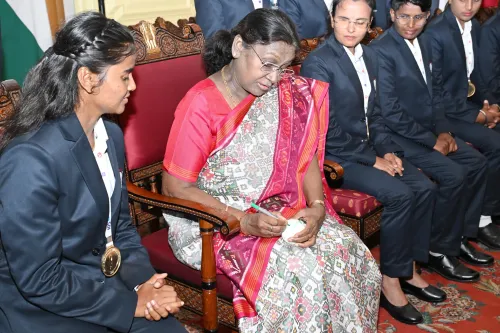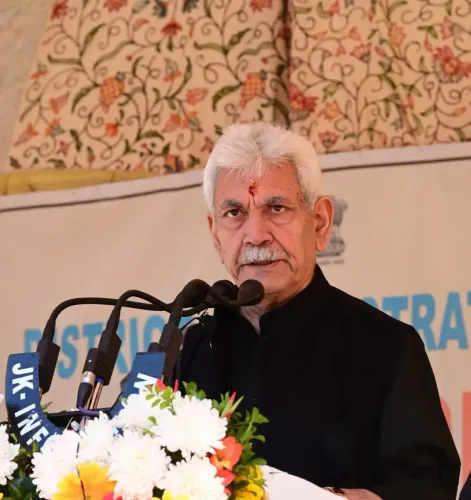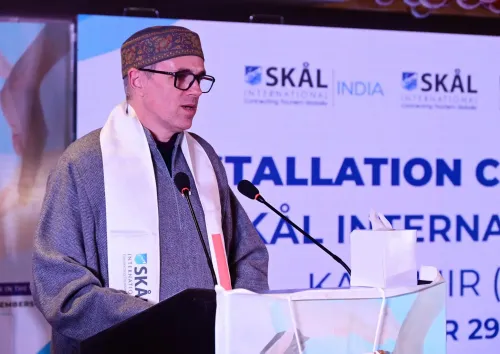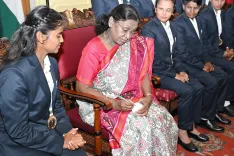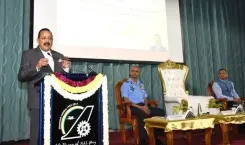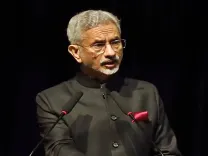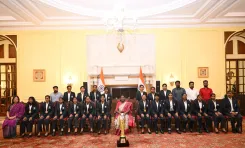Is Union Minister Kiren Rijiju Launching a Paperless Delhi Assembly under the e-Vidhan Project?
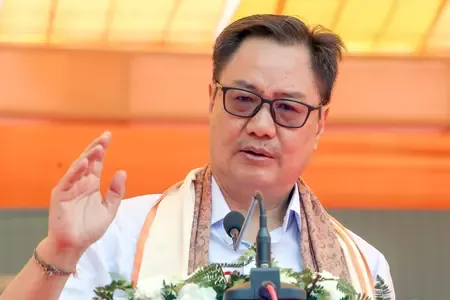
Synopsis
Key Takeaways
- The e-Vidhan project aims to modernize legislative processes in Delhi.
- The initiative will make the Assembly fully paperless by July.
- It promotes efficiency and transparency in governance.
- Aligns with sustainability goals by reducing paper use.
- Delhi becomes the 28th state to join the NeVA initiative.
New Delhi, June 14 (NationPress) In a groundbreaking move aimed at revolutionizing legislative processes, Union Minister of Parliamentary Affairs Kiren Rijiju is set to lay the foundation stone for the e-Vidhan (paperless Assembly) initiative at the Delhi Legislative Assembly this Saturday.
The ceremony will also see the participation of Delhi Assembly Speaker Vijender Gupta.
This ambitious project seeks to transition the Delhi Assembly into a fully digital, paperless operation under the National e-Vidhan Application (NeVA) framework.
Speaker Vijender Gupta has indicated that the forthcoming Monsoon Session of the Assembly, slated for July, will mark the first instance of a completely paperless session, enabled by cutting-edge digital tools and applications developed as part of the NeVA initiative.
To facilitate this shift, Speaker Gupta had previously undertaken a study visit to the Odisha Legislative Assembly in April. Odisha has effectively adopted the NeVA system, providing a robust model for others to follow.
During his three-day visit starting April 15, the Speaker evaluated Odisha's experiences with the software, its integration, and the operational advantages realized post-transition to a paperless environment.
The implementation of the e-Vidhan system is anticipated to greatly enhance the efficiency, speed, and transparency of legislative functions.
Moreover, it aligns with wider sustainability objectives by significantly reducing the reliance on printed materials, thus lessening the Assembly's environmental impact.
The Delhi Assembly recently celebrated its 100th working day, highlighting the e-Vidhan project as a pivotal achievement in its report card.
Prior to this, a tripartite Memorandum of Understanding (MoU) was established among the Delhi Legislative Assembly, the Ministry of Parliamentary Affairs (MoPA), and the Government of the National Capital Territory of Delhi (GNCTD), paving the way for the introduction of the NeVA system.
With the signing of this MoU, Delhi joins as the 28th state legislature in India to embrace the NeVA project, marking a significant milestone in its legislative journey and welcoming the digital era of governance.

